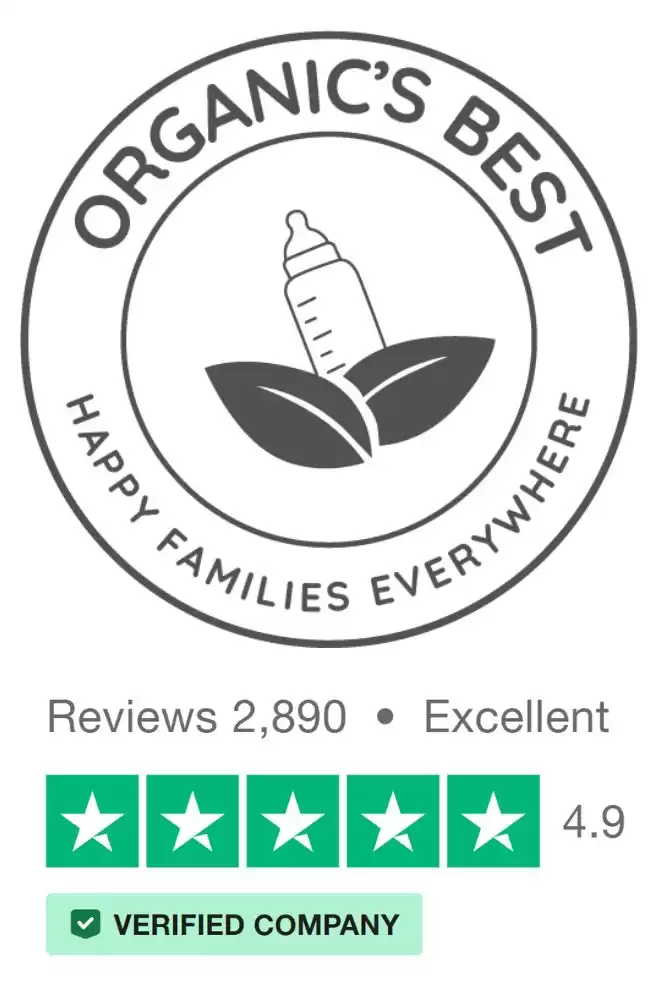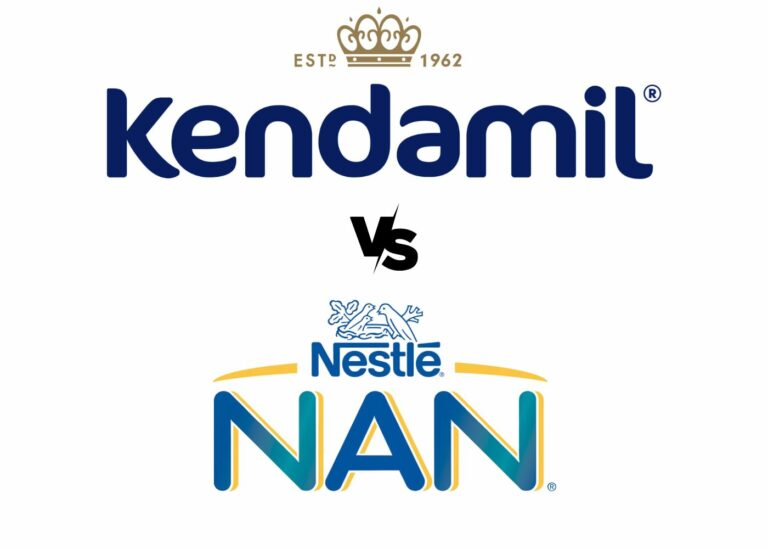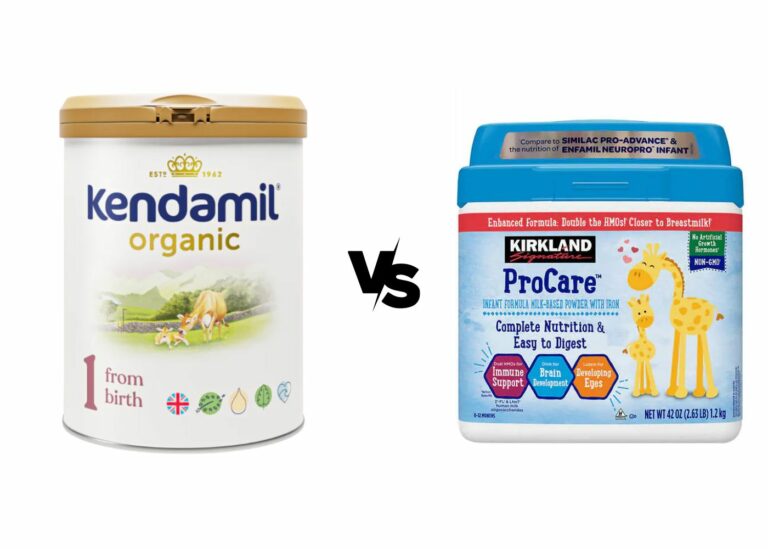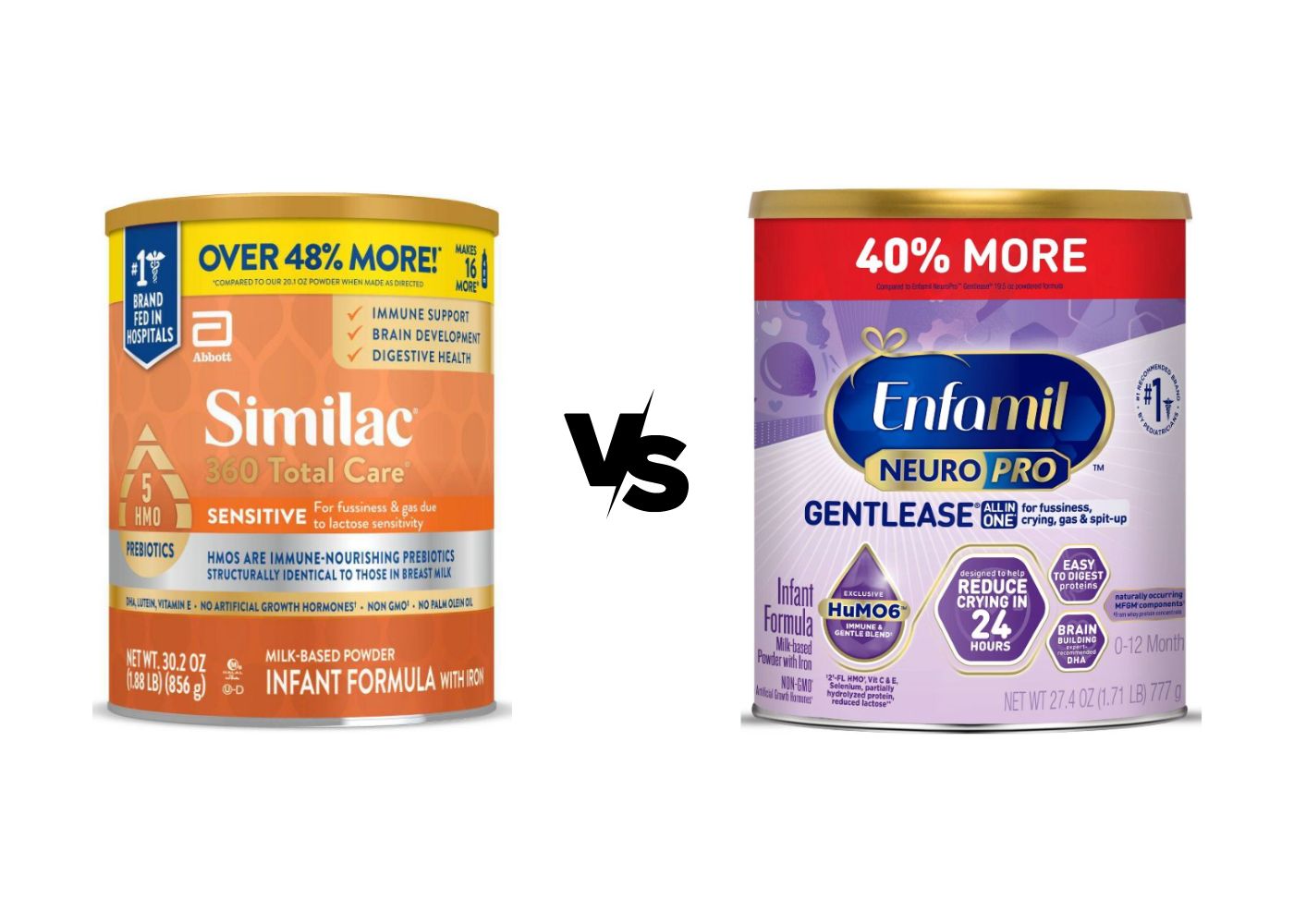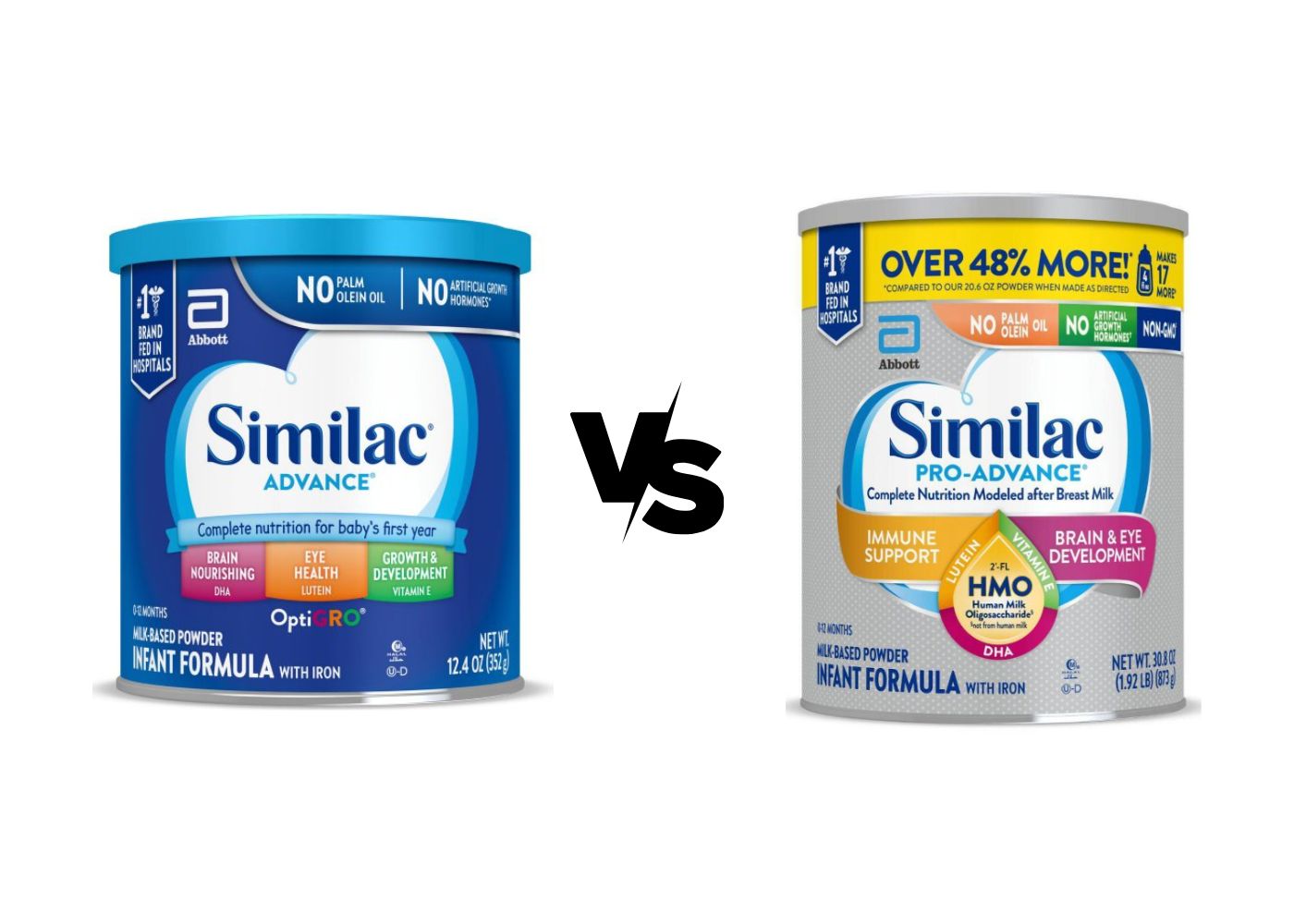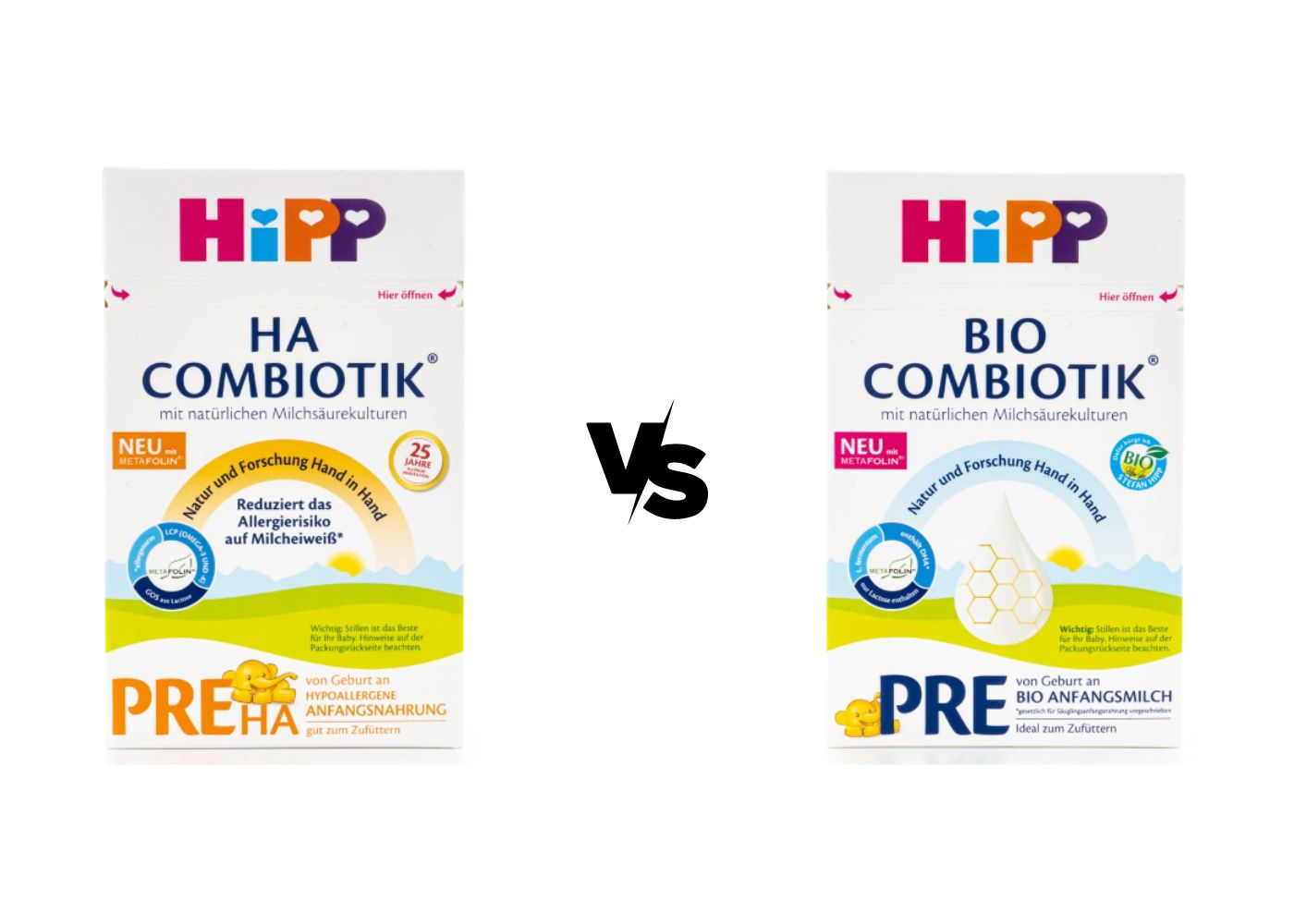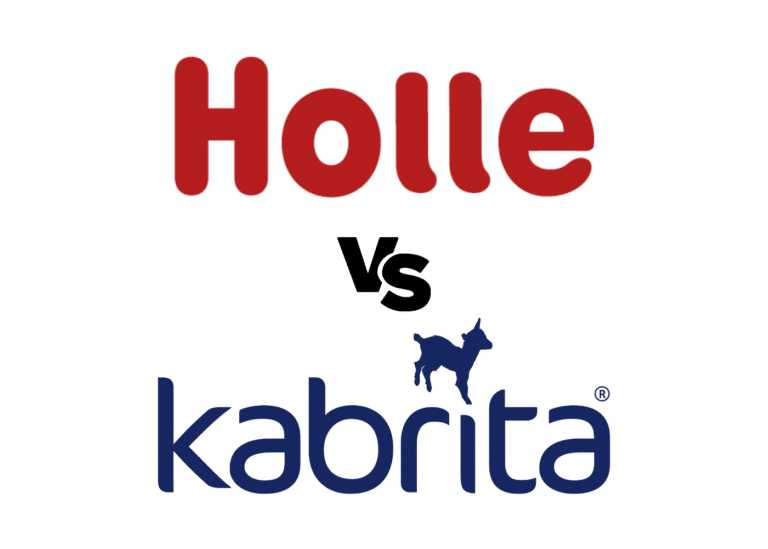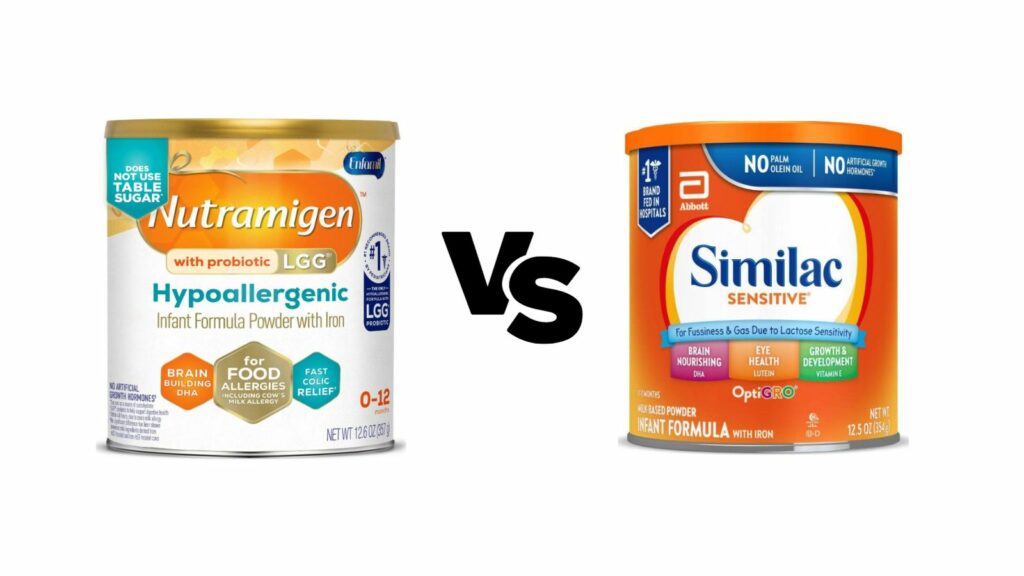
Key Differences Table Between Nutramigen and Similac Sensitive
| Feature/Aspect | Nutramigen | Similac Sensitive |
|---|---|---|
| Intended Use | Babies with cow’s milk protein allergy (CMPA) and lactose intolerance | Babies with lactose sensitivity |
| Formula Type | Hypoallergenic, extensively hydrolyzed casein protein | Milk-based, uses milk protein isolate |
| Protein Source | Extensively hydrolyzed casein | Milk protein isolate |
| Carbohydrates | Corn syrup solids, modified corn starch, no simple sugars | Corn syrup solids, includes sugar |
| Fats and Oils | Blend of oils including palm olein, coconut oil, soy oil, sunflower oil, plus ARA & DHA sources | High oleic safflower oil, soy oil, coconut oil, plus ARA & DHA sources; no palm olein |
| Probiotics | Lactobacillus rhamnosus GG (LGG) | None listed |
| DHA | Yes | Not mentioned, but typically included in Similac products |
| Non-GMO | Yes | Yes |
| Primary Designed For | Allergies and sensitivity to cow’s milk protein | Lactose sensitivity, not for CMPA |
| Other Additives | Omega 3 DHA for brain development | Nutrients supporting brain and eye development |
This article aims to compare two special formulas: Nutramigen vs Similac Sensitive.
We will take a look at their ingredients and nutritional compositions to help you make the best decision for your baby.
Let’s get after it!
Related read: Enfamil Enspire vs Similac 360 Total Care
Our Short Answer
It is difficult to choose an absolute winner in the comparison between Nutramigen and Similac Sensitive, as they are designed for different needs, but let’s try.
Choose Nutramigen if your baby:
- Has CMPA
- Is lactose intolerant
Choose Similac Sensitive if your baby:
- Is lactose intolerant or lactose sensitive and you don’t want a formula with palm oil, but you don’t mind the added sugar
On paper, Nutramigen is a more complete formula because it has probiotics, no added simple sugars and hydrolyzed protein (easier to digest), so this would be our choice if our baby has any digestive needs.
That said, if your baby has some sensitivity to lactose or cow’s milk protein, but no allergies, there are other more complete and nutritious formulas.
With over 100,000 orders delivered globally since 2019, Organic's Best offers clean, safe, and nutritionally rich formulas and snacks.
Free shipping over $100, commitment to freshness and authenticity.
- Express delivery in 2 to 5 business days
- Sourcing from European manufacturers
- Minimum shelf life of 6 months
- Climate-Controlled Warehouse
Give your little one the best start.
CODE 'BLW' for a 5% discount in all orders
Overview of the Two Formulas
Nutramigen by Enfamil is a hypoallergenic, lactose-free formula for babies with cow’s milk allergies, featuring hydrolyzed proteins, Omega 3 DHA, and LGG probiotics for gut and immune health.
Similac Sensitive is for lactose sensitivity, not CMPA, aiding digestion and supporting brain and eye development, and is non-GMO.
Nutramigen
Nutramigen is a hypoallergenic, lactose-free infant formula created by Enfamil, tailored for infants who have food allergies, including cow’s milk allergy. Its unique feature is that it contains extensively hydrolyzed casein protein. This simply means that it breaks down the milk protein into tiny pieces, making it less likely to cause an allergic response.
This formula also comes with Omega 3 DHA – an essential fatty acid that aids in brain development – and Lactobacillus rhamnosus or LGG probiotics. The probiotic inclusion aims to strengthen gut health and maintain a balanced immune system.
Did you notice the word ‘hypoallergenic‘ mentioned? Yes, Nutramigen is specially designed for babies with cow’s protein allergy or CMPA and/or lactose intolerance, since it’s lactose-free.
Learn more: Hydrolyzed formulas | Baby Formula Allergies
Similac Sensitive
Similac Sensitive is tailored toward infants with sensitive stomachs, but not allergies. It’s an easy-to-digest, milk-based infant formula specifically designed to ease fussiness and gas resulting from lactose sensitivity.
Similac’s blend of nutrients is made explicitly to support baby’s brain and eye development. It is non-GMO.
However, Similac Sensitive isn’t suitable for infants with CMPA.
Nutritional Composition
Nutramigen features hydrolyzed casein protein for easy digestion in babies with allergies and sensitive tummies, while Similac Sensitive uses milk protein isolate for lactose-sensitive babies.
Both have corn syrup solids for energy, with Nutramigen adding modified corn starch and no simple sugars.
Nutramigen contains a mix of oils including palm olein for essential fatty acids, but Similac avoids palm olein, offering better fat content for calcium absorption.
Protein Content
Protein is crucial for growing bodies—it helps build cells, makes hemoglobin that carries oxygen around our bodies, and fights infection.
In Nutramigen, protein comes from extensively hydrolyzed casein. Hydrolyzed means that the casein protein is broken down into smaller bits to make it easier to digest—very helpful for babies with allergies or sensitive tummies.
Learn more: Partially vs Extensively Hydrolyzed Baby Formula
On the other hand, Similac Sensitive derives its protein from milk protein isolate. It’s stripped of fat and lactose, offering pure protein without possible allergens found in standard cow’s milk.
The difference in protein is that Nutramigen is designed for babies with allergies to cow’s milk protein, which is the reason why it has hydrolyzed protein. Similac Sensitive uses milk protein isolate, which makes the protein isolated from other components like lactose, but it is not broken down. There is not a winner here, it depends on your baby’s needs.
Carbohydrate Content
Carbohydrates are a significant resource for energy—and… babies need a LOT of energy!
Both Nutramigen and Similac Sensitive use corn syrup solids as their primary carbohydrate source.
Learn more: Corn Syrup in Formula
Additionally, Nutramigen contains modified corn starch which adds to its carbohydrate content while Similac Sensitive includes sugar in its mix.
Both formulas use corn syrup solids, but Nutramigen has a better carb source on paper, thanks to adding corn starch, instead of simple sugars, like Sensitive.
Fats and Oils
Fats are an essential part of any infant’s diet—they help with brain development as well as provide energy.
Nutramigen uses a blend of different oils like palm olein oil, coconut oil, soy oil, and sunflower oils along with Mortierella Alpina Oil, and Crypthecodinium Cohnii Oil (known sources of ARA & DHA). They’re essential for vision development besides having numerous other health benefits.
Similac Sensitive uses high oleic safflower oil, soy oil, and coconut oil. It also contains C. Cohnii Oil and M. Alpina Oil for its omega-3 fatty acids—necessary for cognition and eye development.
Both formulas contain DHA and ARA, but regarding fat content, Similac gets the victory, thanks to not using palm olein like Nutramigen. This oil has been linked with poor calcium absorption in several studies, apart from its environmental impact.
Nutrient Composition Comparison
| Nutrient (per 100 Cal) | Nutramigen | Similac Sensitive |
|---|---|---|
| Protein (g) | 2.8 | 2.1 |
| Fat (g) | 5.3 | 5.4 |
| Linoleic Acid (mg) | 780 | 1000 |
| Carbohydrate (g) | 10.3 | 10.9 |
| Vitamin A (IU) | 300 | 300 |
| Vitamin D (IU) | 60 | 60 |
| Vitamin E (IU) | 2 | 1.5 |
| Vitamin K (mcg) | 9 | 8 |
| Thiamin (Vitamin B1, mcg) | 80 | 100 |
| Riboflavin (Vitamin B2, mcg) | 90 | 150 |
| Vitamin B6 (mcg) | 60 | 60 |
| Vitamin B12 (mcg) | 0.3 | 0.25 |
| Niacin (mcg) | 1000 | 1050 |
| Folic Acid (Folacin, mcg) | 16 | 15 |
| Pantothenic Acid (mcg) | 500 | 450 |
| Biotin (mcg) | 3 | 4.4 |
| Vitamin C (Ascorbic Acid, mg) | 12 | 9 |
| Choline (mg) | 24 | 24 |
| Inositol (mg) | 24 | 24 |
| Calcium (mg) | 94 | 84 |
| Phosphorus (mg) | 52 | 56 |
| Magnesium (mg) | 8 | 6 |
| Iron (mg) | 1.8 | 1.8 |
| Zinc (mg) | 1 | 0.75 |
| Manganese (mcg) | 25 | 5 |
| Copper (mcg) | 75 | 90 |
| Iodine (mcg) | 15 | 15 |
| Selenium (mcg) | 2.8 | 2 |
| Sodium (mg) | 47 | 30 |
| Potassium (mg) | 110 | 107 |
| Chloride (mg) | 86 | 65 |
Prebiotics and Probiotics
Nutramigen contains LGG probiotics to support infants’ gut health and immune balance, but lacks prebiotics.
Similac Sensitive does not include any listed probiotics or prebiotics.
While often overlooked, probiotics and prebiotics are instrumental in supporting infants’ gut health—playing a significant part in their immune system.
Nutramigen is boosted by Lactobacillus Rhamnosus or LGG – one of the most clinically studied probiotics. This beneficial bacterium supports a balanced immune system while promoting good gut health. It has no prebiotics.
Similac Sensitive, on the other hand, doesn’t specifically list any probiotics or prebiotics.
A robust digestive system leads to healthier babies who can digest nutrients well and have high resistance to diseases.
Alternatives to Nutramigen and Similac Sensitive
For Nutramigen
If you’re looking for alternatives to Nutramigen, consider Similac Alimentum. It’s also a hypoallergenic formula designed with sensitive tummies in mind offering similar extensive hydrolyzed protein sources like Nutramigen. *Read: Alimentum vs Nutramigen
Another alternative is Hipp HA—a hypoallergenic organic baby formula that ensures high-quality ingredients farmed through bio-dynamic agriculture. However, it’s essential to know that Hipp HA is not suitable for CMPA (Cow’s Milk Protein Allergy), but suits little ones with sensitivities well. *Read: Hipp HA vs Nutramigen | Hipp HA vs Alimentum
For Similac Sensitive
If your little one struggles with lactose sensitivity and you’re searching for an alternative to Similac Sensitive, check out Hipp Comfort. This formula goes easy on the stomach by modifying the milk protein and having reduced lactose content. It is organic and with a powerful blend of pre and probiotics. *Read: Hipp Comfort vs Hipp HA
Best Places to Buy Nutramigen and Similac Sensitive


Nutramigen
Sensitive
Buy Similac Sensitive at Target
Buy Similac Sensitive at Walmart
Last Words
We hope this comparison between Nutramigen and Similac Sensitive has helped you make an informed choice.
Remember: The key is patience when finding the right formula for your baby; what might work best for one might not necessarily work as effectively for another. Always consult your pediatrician before making any major changes to your baby’s diet.
If you need any extra help, feel free to leave a comment or contact us on our homepage for free consultation.
Happy feeding!
We’re Maria and Alberto, a married couple and educators who are nutrition enthusiasts. Even before we had kids, we were already crazy about nutrition.
We’d read scientific articles, watch videos from nutritionists, and spend hours listening to nutrition podcasts.
Today, we continue doing this, but in a different way, as we’ve learned to sift through the noise and trends. Nutrition, like any other field of knowledge, the more you read and learn, the more you develop a comprehensive understanding of reality, and that’s what has happened to us.
Before having our first child, we focused on learning everything we could about child nutrition, using the same techniques we had already employed, backed by our extensive knowledge in nutrition.
Our mission is to help other parents with their children’s nutrition, to help them become the best versions of themselves.
If we are what we eat and drink, which is absolutely true, let’s do it right!


